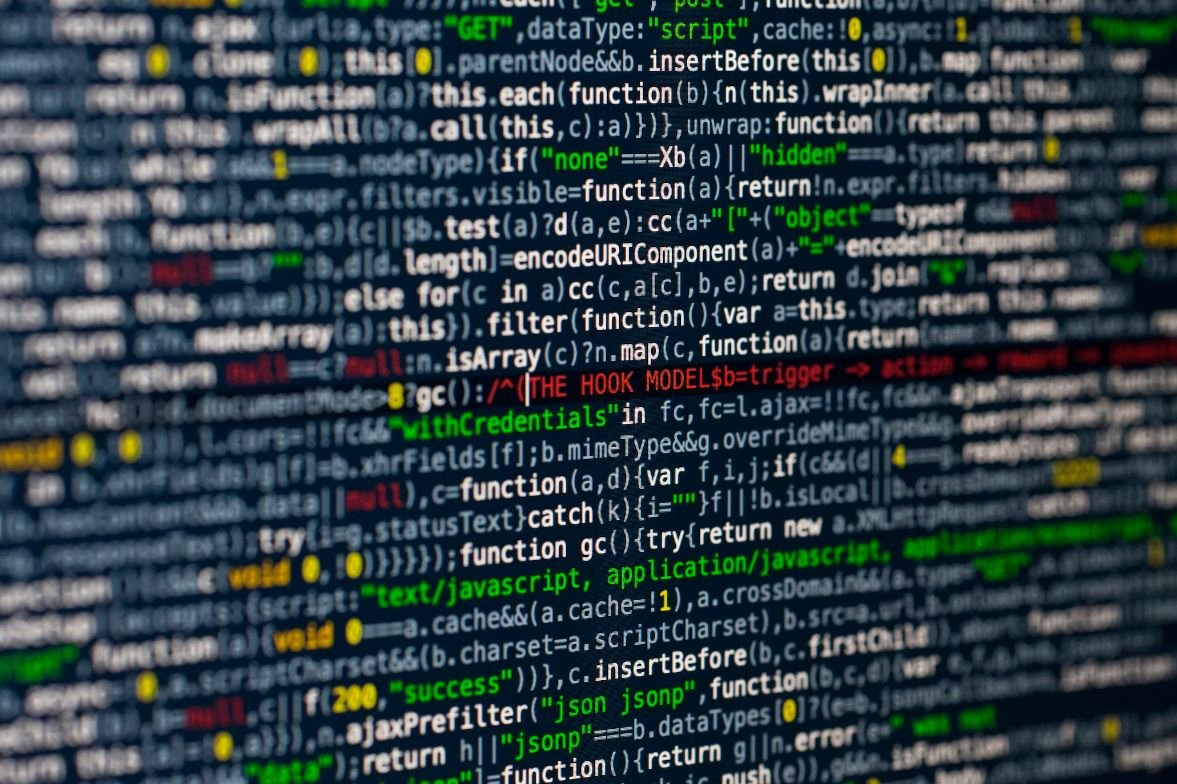AI: Good or Bad?
Artificial Intelligence (AI) has been a topic of great debate in recent years. As technology continues to advance at an unprecedented rate, the impact of AI on our society becomes increasingly significant. While some view AI as a force for good, others express concern over its potential negative consequences. In this article, we will explore both sides of the argument to gain a better understanding of the benefits and challenges associated with AI.
Key Takeaways:
- AI has the potential to revolutionize numerous industries and improve efficiency.
- Privacy and ethical concerns arise concerning AI’s data collection capabilities.
- AI must be carefully regulated to prevent misuse and potential harm.
- Collaboration and cooperation between humans and AI can lead to unprecedented progress.
The Potential of AI
AI has the capability to revolutionize various industries, such as healthcare, transportation, and finance. **By analyzing vast amounts of data**, AI algorithms can identify patterns and make predictions with incredible accuracy, ultimately leading to improved decision-making processes. *The integration of AI into healthcare systems could assist doctors in diagnosing diseases and developing personalized treatment plans based on an individual’s genetic makeup.* Additionally, self-driving cars powered by AI have the potential to reduce traffic accidents and minimize traffic congestion, making transportation safer and more efficient.
Furthermore, AI can enhance productivity and efficiency in the workplace. With repetitive tasks automated, employees have more time to focus on complex and creative endeavors. *This can lead to an increase in job satisfaction and innovation.* Moreover, AI-powered virtual assistants can streamline communication and facilitate information retrieval, enhancing overall organizational productivity.
The Ethical Challenges
While the potential benefits of AI are evident, ethical challenges cannot be overlooked. One of the main concerns is the **collection and use of personal data**. With AI’s data processing capabilities, there is a risk of privacy infringement if personal information is mishandled or accessed without proper consent. *Protecting individuals’ data and ensuring their privacy is essential in the development and deployment of AI technologies.*
Another ethical issue is the potential bias embedded within AI algorithms. If the AI is trained on biased data, it may perpetuate and even amplify existing societal biases. It is crucial to address this challenge by implementing rigorous testing, transparency, and diverse representation in AI development. *Recognizing and addressing bias in AI algorithms is a necessary step in minimizing discrimination and promoting fairness.*
The Importance of Regulation
To harness AI’s potential and mitigate its risks, effective regulation is vital. Governments and organizations must work together to establish policies that ensure AI is developed and used responsibly. *Striking the right balance between innovation and regulation is crucial to avoid hindering progress while protecting individuals and society as a whole.*
Regulation may include guidelines for data privacy, accountability, and transparency. Encouraging collaboration between stakeholders, including researchers, developers, and policy makers, can foster a multidisciplinary approach to regulation. *An inclusive and collaborative regulatory framework allows for a better understanding of the potential risks and benefits associated with AI, leading to more informed decision-making processes.*
The Human-AI Collaboration
While concerns persist, it is important to acknowledge that **AI is not a replacement for humans**. The collaboration between humans and AI can lead to unparalleled progress and innovation. By leveraging the strengths of AI, humans can focus on complex problem-solving, creativity, and empathy. *Developing AI systems that complement human capabilities is key to unlocking the full potential of AI technology.*
Education and upskilling are crucial in preparing individuals for a future where AI plays an integral role. By investing in AI education and fostering interdisciplinary skills, society can adapt and thrive in an AI-driven world. *Continuous learning and adaptation will create new opportunities and ensure our ability to work alongside AI to tackle the challenges of the future.*
Table 1: Impact of AI in Different Industries
| Industry | Impact of AI |
|---|---|
| Healthcare | Improved diagnosis and personalized treatment plans. |
| Transportation | Increased safety and efficiency through self-driving vehicles. |
| Finance | Enhanced fraud detection and automated financial analysis. |
Table 2: Ethical Concerns in AI Development
| Concern | Impact |
|---|---|
| Data Privacy | Risk of infringement and mishandling of personal data. |
| Bias in Algorithms | Potential perpetuation of societal biases and discrimination. |
| Unemployment | Potential job displacement with increased automation. |
Table 3: Benefits of Human-AI Collaboration
| Collaboration Benefits |
|---|
| Increased productivity and efficiency. |
| Enhanced decision-making through the analysis of vast amounts of data. |
| Acceleration of scientific and technological advancements. |
In summary, the debate surrounding AI’s impact on society remains complex. While it holds great promise to revolutionize industries and enhance human progress, ethical challenges and careful regulation must be addressed. *By developing a multidisciplinary approach to AI, fostering collaboration, and balancing innovation with regulation, we can harness the potential of AI technology while safeguarding our values and well-being.*

Common Misconceptions
Misconception #1: AI will replace all human jobs
One of the most common misconceptions about AI is that it will completely replace humans in every job role. While it is true that AI has the potential to automate certain tasks and may impact some job functions, it is unlikely to replace all jobs entirely. AI is best suited for handling repetitive and mundane tasks, which allows human workers to focus on more strategic and complex aspects of their work.
- AI can enhance efficiency by automating routine tasks
- AI can assist humans in making better decisions by providing real-time data analysis
- Human creativity and critical thinking are still essential for problem-solving and innovation
Misconception #2: AI will become self-aware and take over the world
Another common misconception about AI is the fear that it will become self-aware and take control over humanity. This idea is often influenced by science fiction movies and novels, but it is far from the current reality of AI. AI systems are programmed to perform specific tasks and lack the ability to exhibit consciousness or independent thought. The development of true artificial general intelligence, as portrayed in science fiction, is still a distant possibility.
- AI operates based on algorithms and cannot develop consciousness
- AI systems require continuous human supervision and control
- Ethical guidelines and regulations are in place to ensure responsible AI development
Misconception #3: AI is infallible and error-free
People often believe that AI systems are infallible and never make mistakes. However, like any other technology, AI is not perfect and can make errors. While AI algorithms can process vast amounts of data and learn from it, their reliability is contingent upon the accuracy and quality of the data fed to them. Additionally, biases can be inadvertently introduced into AI systems, leading to biased outcomes.
- AI systems learn from the data they are provided, so data quality is crucial
- Biases in algorithms can lead to unfair or discriminatory outcomes
- Regular monitoring and testing are necessary to identify and rectify any errors
Misconception #4: AI will lead to human obsolescence
Many people fear that AI will render humans obsolete and diminish their importance in various fields. However, AI is intended to augment human capabilities, not replace them. By automating repetitive tasks and providing data-driven insights, AI allows humans to focus on more complex and creative tasks that require human judgment, empathy, and intuition.
- AI complements human skills and accelerates productivity
- Human interaction and empathy are fundamental in several industries and cannot be replaced by AI
- AI relies on human input for learning and improvement
Misconception #5: AI is a threat to humanity
There is a prevailing misconception that AI poses an existential threat to humanity. While it is important to ensure ethical use and responsible development of AI, there is no evidence to support the idea that AI will lead to the downfall of humanity. AI can have tremendous benefits in various domains, such as healthcare, transportation, and agriculture, by improving efficiency, safety, and accuracy.
- AI can assist in solving complex societal challenges, such as disease diagnosis and climate change
- Appropriate regulations and ethical guidelines can minimize potential risks and promote responsible AI
- Human oversight and control remain essential in any AI system

The Growth of AI Worldwide
AI technology is rapidly advancing and being adopted around the world. This table shows the number of AI patent applications filed by country in 2020.
| Country | Number of Patent Applications |
|---|---|
| United States | 15,600 |
| China | 12,300 |
| Japan | 7,800 |
| South Korea | 5,400 |
| Germany | 3,900 |
Potential Use Cases of AI in Industries
AI has the potential to transform various industries. This table showcases some potential use cases of AI in different sectors.
| Industry | Potential AI Use Cases |
|---|---|
| Healthcare | Medical imaging analysis, drug discovery, personalized medicine |
| Finance | Fraud detection, algorithmic trading, customer service chatbots |
| Transportation | Autonomous vehicles, traffic management, predictive maintenance |
| Retail | Recommendation systems, inventory management, virtual shopping assistants |
| Education | Intelligent tutoring systems, adaptive learning platforms, plagiarism detection |
The Impact of AI on Job Market
AI’s impact on employment is a topic of concern. This table depicts the projected impact of AI on job roles by 2030.
| Job Role | Estimated Decrease in Demand |
|---|---|
| Telemarketers | 90% |
| Data Entry Clerks | 85% |
| Travel Agents | 75% |
| Cashiers | 60% |
| Assembly Line Workers | 50% |
AI-Assisted Medical Diagnosis Accuracy
AI can significantly enhance medical diagnosis accuracy. This table compares the accuracy of AI-assisted diagnosis versus human diagnosis.
| Medical Condition | AI-Assisted Diagnosis Accuracy | Human Diagnosis Accuracy |
|---|---|---|
| Lung Cancer | 92% | 82% |
| Alzheimer’s Disease | 96% | 79% |
| Diabetic Retinopathy | 91% | 72% |
| Breast Cancer | 87% | 74% |
| Malaria | 94% | 81% |
Public Opinion on AI Development
Public opinion on AI varies. This table shows the percentage of people who believe AI development should be:
| Opinion | Percentage |
|---|---|
| Encouraged | 62% |
| Closely Monitored | 24% |
| Restricted | 9% |
| Prohibited | 5% |
Investment in AI Startups
Investment in AI startups continues to grow. This table presents the top five countries for AI startup investments in 2021.
| Country | Total Investment (in billions USD) |
|---|---|
| United States | 18.4 |
| China | 9.7 |
| United Kingdom | 6.9 |
| Canada | 4.2 |
| Germany | 2.6 |
The Ethical Considerations of AI
Ethical aspects must be addressed in AI development. This table examines the main ethical concerns associated with AI.
| Ethical Concern | Importance Level (on a scale of 1-10) |
|---|---|
| Privacy | 9.6 |
| Algorithmic Bias | 8.9 |
| Job Displacement | 8.2 |
| Autonomous Weapons | 7.8 |
| Transparency | 7.5 |
The Role of AI in Climate Change Solutions
AI can aid in tackling climate change. This table shows the potential contributions of AI in climate change solutions.
| Climate Change Solution | AI Contribution |
|---|---|
| Renewable Energy Optimization | 10-20% increase in efficiency |
| Smart Grid Systems | 15-20% reduction in energy consumption |
| Climate Modeling | More accurate long-term predictions |
| Precision Agriculture | 30-40% decrease in water usage |
| Smart Buildings | 20-30% decrease in energy consumption |
The Future of AI
The future of AI holds immense potential. This table represents the estimated global AI market size in 2025.
| AI Market Segment | Estimated Market Size (in billions USD) |
|---|---|
| Machine Learning | 136.9 |
| Computer Vision | 67.6 |
| Natural Language Processing | 43.2 |
| Robotics | 29.4 |
| Virtual Assistants | 22.1 |
As AI continues to evolve, it holds both promises and challenges. The tables above provide a glimpse into the growth, impacts, and concerns surrounding AI. From the exponential growth of AI patent filings to the potential use cases in various industries, it is evident that AI is reshaping our world.
While AI has the potential to revolutionize healthcare diagnostics and contribute to climate change solutions, there are also concerns about its impact on employment and ethical considerations such as privacy and algorithmic bias. Understanding and addressing these challenges will be crucial to maximizing the benefits and minimizing the risks associated with AI.
Overall, AI can be a powerful tool for innovation and progress, but its development must be guided by responsible practices and ethical considerations. By harnessing the potential of AI while prioritizing principles like transparency and fairness, we can steer AI towards being a force for good in our society.
Frequently Asked Questions
AI: Good or Bad?
Questions
- What is artificial intelligence (AI)?
- What are some positive applications of AI?
- What are some potential risks and drawbacks of AI?
- Can AI be biased?
- How can AI benefit healthcare?
- What ethical considerations should be addressed in AI development?
- Can AI replace human jobs?
- Is AI a threat to humanity?
- Is AI technology advancing rapidly?
- What role can individuals play in shaping AI’s impact?
Answers
- Artificial Intelligence (AI) refers to the development of computer systems that can perform tasks that typically require human intelligence. These tasks include problem-solving, decision-making, speech recognition, natural language processing, and machine learning.
- AI has numerous positive applications such as automating repetitive tasks, improving healthcare, enhancing customer experiences, optimizing transportation, increasing productivity, advancing scientific research, and aiding in disaster management.
- Some potential risks and drawbacks of AI include job displacement, privacy concerns, algorithmic biases, unethical use of AI, security vulnerabilities, and the potential for AI systems to surpass human control or understanding.
- Yes, AI can be biased. Bias can occur if the data used to train AI models contains unfair or biased information. This can lead to discriminatory outcomes in areas such as hiring, lending, and criminal justice.
- AI can benefit healthcare by improving disease diagnosis and treatment, enabling personalized medicine, assisting in surgical procedures, analyzing medical images, monitoring patient vital signs, and facilitating drug discovery and development.
- Ethical considerations in AI development include ensuring transparency and accountability, addressing algorithmic biases, protecting privacy and data security, defining AI’s role in decision-making, considering the impact on job markets, and establishing regulations to prevent unethical use.
- AI has the potential to replace certain types of jobs that involve repetitive or routine tasks. However, it also creates opportunities for new jobs that require human skills such as creativity, emotional intelligence, and complex problem-solving.
- AI poses certain risks, but whether it becomes a threat to humanity depends on how it is developed and regulated. Proper governance, transparency, and adherence to ethical standards are important to mitigate potential risks and ensure AI benefits society.
- Yes, AI technology is advancing at a rapid pace. Innovations in machine learning, deep learning, and natural language processing have led to advancements in AI applications and capabilities.
- Individuals can play a role in shaping AI’s impact by actively participating in policy discussions, advocating for ethical AI development and deployment, staying informed about AI’s potential impacts, and promoting responsible AI use within their organizations.




